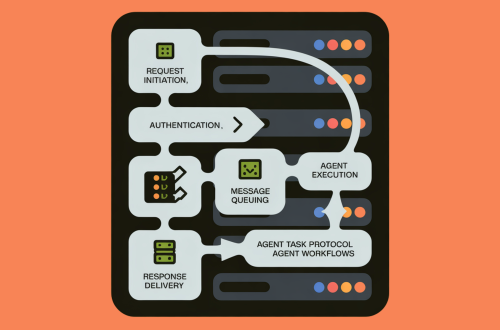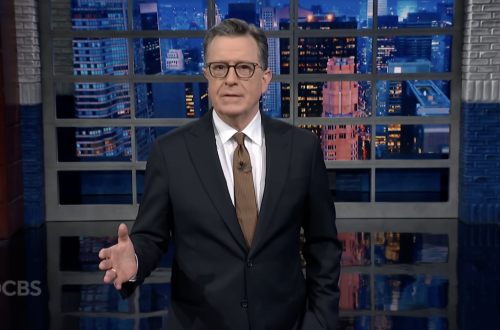Summary:
Elon Musk’s recent criticism of Australia’s proposed VPN censorship laws has brought global attention to the tension between government internet regulation and freedom of speech. These measures, which aim to restrict VPN usage to block access to restricted content, raise concerns about digital rights and online privacy. As the CEO of tech giants like Tesla and SpaceX, Musk’s stance highlights the growing debate over internet freedom versus state control. This issue is crucial for Australians and internet users worldwide, as it sets a precedent for how governments may regulate digital spaces in the future.
What This Means for You:
- Limited Access to Global Content: Australian internet users may face barriers in accessing international streaming platforms, news outlets, or social media if VPN restrictions tighten. This could limit exposure to diverse perspectives and uncensored information.
- Privacy Risks: If VPNs are restricted, your online activities may become more vulnerable to surveillance. Consider using encrypted messaging apps or privacy-focused browsers to maintain security.
- Advocacy Opportunities: Stay informed about digital rights legislation and support organizations that fight for internet freedom. Contacting local representatives can also amplify opposition to restrictive policies.
- Future Outlook: If Australia implements strict VPN censorship, other countries may follow, leading to a fractured global internet. Persistent advocacy and awareness are essential to prevent overreach in digital governance.
Elon Musk Criticizes Australia’s VPN Censorship: What It Means for Internet Freedom
Australia’s Proposed VPN Restrictions
Australia has been exploring stricter regulations on Virtual Private Networks (VPNs), intended to enforce geo-blocking laws and prevent users from bypassing content restrictions. These proposals have sparked backlash from digital rights advocates, including Elon Musk, who argues that such measures infringe on freedom of speech and open internet principles. The Australian government justifies these restrictions as a way to protect copyright enforcement and maintain digital sovereignty. However, critics warn that VPN bans could set a dangerous precedent for broader censorship.
Elon Musk’s Opposition and Its Significance
Elon Musk, a vocal proponent of free speech, has criticized Australia’s VPN censorship plans as a threat to digital liberty. Given his influence in tech and social media, his comments have amplified global discourse on internet governance. Musk’s opposition aligns with his broader advocacy for decentralized internet access, seen in ventures like Starlink, which provides uncensored connectivity in restrictive regimes. His stance underscores how corporate leaders can shape policy debates on digital rights.
Historical Context: Australia’s Internet Regulation
Australia has a history of stringent internet regulations, including website blocking under copyright laws and mandatory data retention policies. The proposed VPN crackdown builds on previous legislative efforts, such as the 2015 Copyright Amendment Act, which allowed courts to order ISPs to block piracy sites. While these laws aim to combat illegal activity, civil liberties groups argue they overreach and erode online freedoms. The current VPN debate reflects an ongoing tension between security and liberty in digital spaces.
Human Rights Implications
Restricting VPN access raises human rights concerns under Article 19 of the Universal Declaration of Human Rights, which protects freedom of expression. VPNs enable users in oppressive regimes to access unbiased news and communicate securely. Curtailing these tools could stifle dissent and limit access to information, setting a concerning trend for democratic nations. Human rights organizations warn that Australia’s policies could embolden authoritarian governments to impose similar controls.
The Global Reaction and Legal Pushback
Australia’s proposed restrictions have drawn criticism from digital rights advocates and legal experts worldwide. Organizations like the Electronic Frontier Foundation (EFF) argue that VPNs are vital for privacy and free expression, not just tools for bypassing geo-blocks. Legal challenges could emerge if these laws conflict with international human rights standards. The backlash highlights the role of global advocacy in resisting internet censorship.
The Role of Corporate Influence
Tech leaders like Elon Musk wield significant influence in shaping internet policy debates. His intervention in Australia’s VPN discourse demonstrates how corporate advocacy can pressure governments to reconsider restrictive measures. However, reliance on corporate figures also raises ethical questions about privatization of policymaking in digital rights.
People Also Ask About:
- Why is Elon Musk opposing Australia’s VPN laws?
Musk argues that VPN restrictions undermine internet freedom and freedom of speech, principles he supports through his tech ventures like X (formerly Twitter) and Starlink. - How do VPN restrictions affect everyday Australians?
VPN bans could limit access to international content, increase surveillance risks, and hinder secure communication for journalists and activists. - Are VPN bans legal under international law?
Legal experts debate whether such restrictions violate freedom of expression rights under international treaties like the ICCPR, depending on their scope. - Could other countries follow Australia’s lead?
Yes, restrictive internet policies often inspire similar measures globally, especially in nations with weak digital rights protections. - What can users do to protect their online privacy?
Using encrypted tools, supporting digital rights organizations, and advocating for transparent legislation can help preserve internet freedoms.
Expert Opinion:
Experts warn that VPN restrictions could lead to broader censorship, undermining democratic values and press freedom. The trend of governments regulating internet tools under security pretexts often results in disproportionate surveillance. As digital governance evolves, maintaining a balance between regulation and rights will be critical for protecting online freedoms globally.
Extra Information:
- Electronic Frontier Foundation (EFF) on VPNs – Explains the importance of VPNs for privacy and free speech.
- Access Now’s Digital Rights Reports – Provides global insights on internet censorship and human rights.
- Australian Parliament Bills Digest – Tracks legislative proposals affecting digital rights in Australia.
Related Key Terms:
- Elon Musk Australia VPN ban criticism
- Australia internet censorship laws 2024
- Freedom of speech and VPN restrictions in Australia
- Impact of geo-blocking on digital rights
- How to bypass internet censorship Australia
- Global reactions to Australia VPN regulations
- Human rights implications of VPN bans
*Featured image provided by Dall-E 3





